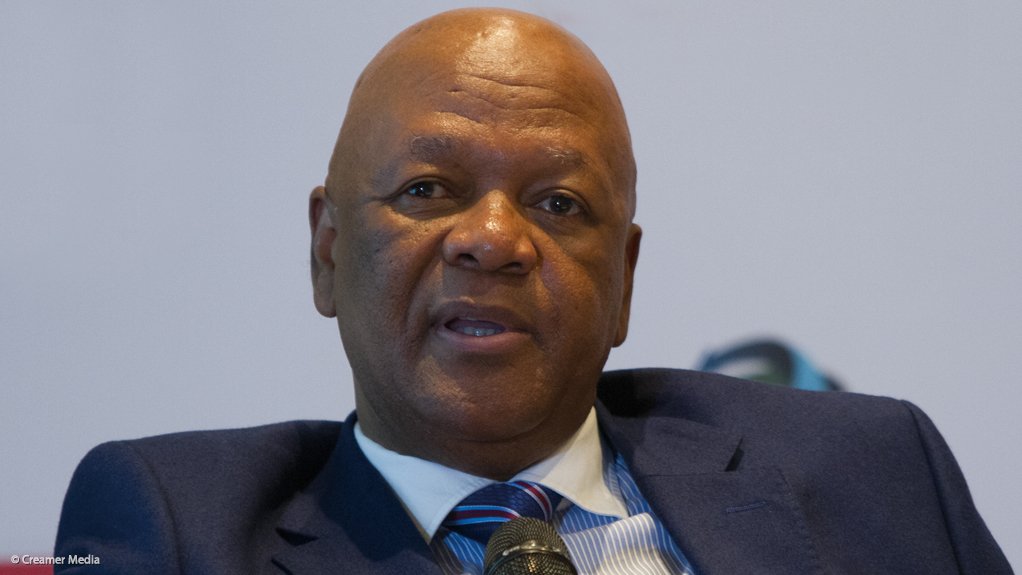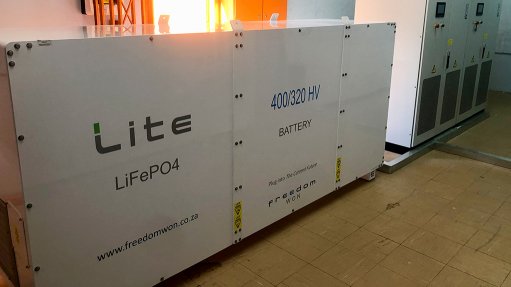DPME to take over South Africa’s spatial planning, fix fragmented policies
With the fragmentation of South Africa’s spatial planning function and the subsequent transfer of responsibility to the Department of Planning, Monitoring and Evaluation (DPME), National Planning Commission chairperson and Minister in the Presidency Jeff Radebe on Monday said an overhaul of the legislation and policies was on the cards to align the respective frameworks concerned with mapping out the country’s cities.
The DPME was currently mapping out the technical details to take over the responsibility for driving and producing the National Spatial Development Framework (NSDF) over the next year to outline how National Development Plan- (NDP-) aligned programmes would transform South Africa’s spatial structures, he told delegates at South African Planning Institute’s seventh Planning Africa Conference, held in Sandton this week.
However, this was “only one” part of the fragmentation of the current planning system, requiring the department to turn its focus to other areas of concern as soon as the transfer process was completed.
To accelerate the redesign of the current spatial dynamics, the DPME aimed to align all policies and legislation not only with each other, but also with the Constitution and the NDP.
“We need to build on the lessons of the past 22 years and introduce policy and legislative reforms that address the contradictions between different legislation. We need to amend the laws,” he commented.
There was a lot of work ahead to bring in line all the planning-related legislation and correct the defects and deficiencies, clarify ambiguities and close policy vacuums.
To address some of the ambiguity, Cabinet in April approved an Integrated Urban Development Framework that provides a roadmap for spatial transformation and to reverse the legacy of apartheid, creating liveable, inclusive and resilient towns and cities.
Further, government was starting to implement – and refine – the recently promulgated Spatial Planning and Land Use Management Act.
“We have also developed a discussion document on proposed reforms to the planning system. This document draws on lessons from various countries in different parts of the world and makes a number of proposals that affect all spheres,” Radebe said.
The document was aimed at identifying specific policy instruments and incentives that could serve as the entry points to initiate processes of transformation, and ensure that the responsibility for the formulation of the NSDF be assigned to an entity responsible for the national planning function to ensure that spatial planning “played its coordinating role” effectively.
The proposed discussion document also suggested the amendment of the frameworks to introduce “greater flexibility” and put “greater weight” on nonmeasurable aspects of strategic plans and yearly performance plans
It further aimed to reestablish a forum for regular interactions to strengthen interaction between national and provincial planning entities.
“Planning requires clear and enabling legislation, policies and guiding frameworks. It also requires institutions with people who have the necessary skills and commitment to the transformation of our country. The clarity of roles is necessary, as is the data to support planning.
Gauteng Cooperative Governance and Traditional Affairs MEC Paul Mashatile added that the “time for disruption” had arrived, with drastic action required to reverse the legacy spatial design, which excluded many people from participating in the economy and accessing opportunities.
“The status quo cannot be allowed to continue,” he said of the lack of “real” integration of the past two decades.
Disruption and reinvention was needed, along with better planning, he told delegates.
“There has to be a paradigm shift as far as spatial planning is concerned.”
South Africa was also shifting from implementing small sporadic projects to clustered, integrated, smart big city megaprojects that were purposefully planned and developed to provide for housing, social amenities and economic opportunity needs.
“Our big cities will provide mixed housing typologies and security of tenure, while fulfilling the principles of integrated development, radical spatial transformation, urban renewal, strengthening institutional capacity and end-user management.”
Mashatile previously indicated that at least six big city developments across Gauteng were in various stages of planning and implementation.
These included Boiketlong, Savannah City and Vaal River City, in the southern corridor, Fort West in the northern corridor, Leeuwpoort in the eastern corridor, Lanseria City and Alex City in the central corridor and Syferfontein City in the western corridor.
Comments
Press Office
Announcements
What's On
Subscribe to improve your user experience...
Option 1 (equivalent of R125 a month):
Receive a weekly copy of Creamer Media's Engineering News & Mining Weekly magazine
(print copy for those in South Africa and e-magazine for those outside of South Africa)
Receive daily email newsletters
Access to full search results
Access archive of magazine back copies
Access to Projects in Progress
Access to ONE Research Report of your choice in PDF format
Option 2 (equivalent of R375 a month):
All benefits from Option 1
PLUS
Access to Creamer Media's Research Channel Africa for ALL Research Reports, in PDF format, on various industrial and mining sectors
including Electricity; Water; Energy Transition; Hydrogen; Roads, Rail and Ports; Coal; Gold; Platinum; Battery Metals; etc.
Already a subscriber?
Forgotten your password?
Receive weekly copy of Creamer Media's Engineering News & Mining Weekly magazine (print copy for those in South Africa and e-magazine for those outside of South Africa)
➕
Recieve daily email newsletters
➕
Access to full search results
➕
Access archive of magazine back copies
➕
Access to Projects in Progress
➕
Access to ONE Research Report of your choice in PDF format
RESEARCH CHANNEL AFRICA
R4500 (equivalent of R375 a month)
SUBSCRIBEAll benefits from Option 1
➕
Access to Creamer Media's Research Channel Africa for ALL Research Reports on various industrial and mining sectors, in PDF format, including on:
Electricity
➕
Water
➕
Energy Transition
➕
Hydrogen
➕
Roads, Rail and Ports
➕
Coal
➕
Gold
➕
Platinum
➕
Battery Metals
➕
etc.
Receive all benefits from Option 1 or Option 2 delivered to numerous people at your company
➕
Multiple User names and Passwords for simultaneous log-ins
➕
Intranet integration access to all in your organisation





















